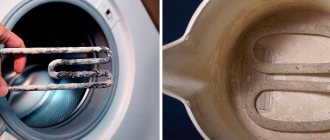Leaching calcium from the spine. Causes, tips and prevention.
In order to understand this problem more deeply, we need to find out what can influence the leaching of this material from the body.
Possible causes of calcium deficiency in the body
Its need is greatest in childhood, when the human body grows and develops. To cover the cost, a person needs to receive at least one gram per day. There are a number of reasons why calcium can be washed out of bones.
- Passive lifestyle. If a person’s activity is minimal, then many processes slow down, fat cells accumulate, and metabolism is disrupted.
- The body may not absorb this element well due to aging. Since our body is constantly aging, this slows down its working mechanisms. There is a decrease in the production of protein and elastin. Many doctors believe that this is most noticeable in women 40–45 years old.
- Problems with hormones. Hormones play a crucial role; they are responsible for the absorption of calcium and the rejuvenation of bone cells. If their production is not large enough, leaching of the mineral may occur.
- Violation of acid-base balance. If the body has this problem, then it tries to reduce acidity with the help of calcium and bring it back to normal. In this case, the consumption of the element increases many times over.
- Vitamin D3. The most important factor, without which calcium absorption is generally impossible. Typically, deficiency can occur in people who lack sunlight.
- Poor nutrition. A rather serious factor under which the following points unfold:
A) Too much fat consumption
B) In multitasking mode, coffee is an integral part of life. However, excessive consumption triggers a number of important processes that can serve as a source of consumption: the production of adrenaline and an increase in energy. These actions greatly increase the consumption of calcium from the body. Since caffeine has a diuretic effect, useful substances leave the body with the release of urine.
C) A small amount of protein in the food taken. Protein serves as the basis of the entire body, it makes bones stronger, participates in the process of cell renewal, as well as improving muscle tissue. Animal proteins play an important role for humans; they have a greater value than plant proteins.
D) The following types of food repeatedly deplete mineral reserves: spicy, sour, sweet and salty.
D) If you spend a long time warmly processing food that is enriched with calcium, you can lose a significant part of this element, as well as other useful substances.
E) The release of calcium can be hindered by foods with the addition of various chemical elements (sweeteners, enhancers, etc.). If they are present, the absorption of calcium in the body may also slow down.
Which group of people is more susceptible to calcium leaching?
Pregnant women are mainly susceptible to calcium leaching. Since their body gives most of it to the formation of fetal health. There is a possibility of calcium loss during menopause, because many factors appear that contribute to this process.
Elderly people are also susceptible to this disease, but from a physiological point of view. Due to calcium imbalance, bones become very fragile. It is worth noting that for men this period begins much later than for women, after 65 years.
Doctors recommend
Many professionals believe that calcium leaching can be both slowed down and prevented. You just need to follow a few simple recommendations to help your spine.
1. Products in the diet.
Every day a person should eat foods that contain large amounts of the mineral, plus it should be easily digestible. If possible, vitamin D should predominate.
Nutritionists believe that the main favorite in terms of content is eggshells, not eggs, but shells. In order for the body to receive sufficient daily needs, it is necessary to eat one-half teaspoon of crushed shells. Canned fish is also a tasty and healthy option. It is closed right with the bones, and they serve as a wonderful source of calcium. If possible, you should include products such as nuts, herbs, cheese, milk and even soy in your grocery basket.
To add vitamin D to your body, you can eat fish, red caviar and beef, as well as liver, egg yolk and mushrooms.
2. Preparations fortified with calcium.
Before taking various medications, you should consult your doctor, as there may be various side effects, including overdose. They mainly focus on those containing elements such as zinc, magnesium, phosphorus and vitamins D and C.
Various doctors agree that many of these drugs should be taken during the formation of the skeleton and growth of the body. According to scientists, this is somewhere between 20 and 25 years. It is especially recommended for pregnant women, as well as those who have reached menopause. All these solutions help delay the development of bone diseases in people who have reached 50 years of age.
3. Active lifestyle.
Prevention measures
It is important to understand that this disease is quite serious and if it is not stopped in time, there may be consequences.
You need to constantly monitor your health, from your youth. Many diseases due to calcium loss can appear very quickly and unpredictably.
It is worth visiting a doctor regularly, as well as at the first signs of illness, so that appropriate treatment can be carried out.
Author: K.M.N., Academician of the Russian Academy of Medical Sciences M.A. Bobyr
Provides calcium
Dairy products must be present in the diet - they contain a large amount of calcium, even children know this. It is recommended to consume cottage cheese, fermented baked milk, and kefir at least once a day.
Next on our list are:
- cereals, including whole grain bread and buckwheat;
- legumes and peas;
- oranges;
- greenery;
- nuts;
- oatmeal;
- dried apricots, raisins and other dried fruits;
- persimmon;
- bananas;
- green tea.
You can check the level of calcium in the body in absolutely any clinic. This procedure is called a biochemical blood test for calcium.
It is advisable to eat foods containing calcium in the first half of the day, best in combination with vitamin D.
What are the risks of mineral deficiency?
Calcium plays a vital role in human health. It is responsible for the normal functioning of the nervous, cardiovascular system, as well as the musculoskeletal system.
One of the signs of mineral deficiency is bone fragility
A deficiency of this mineral reduces the strength of teeth and bones. It can lead to the development of osteoporosis, causing pain in the bones and muscles. This disease is especially dangerous in adulthood, when the bone can break under any physical impact.
Children should not drink coffee
“You can’t, you’re still small. When you grow up, you’ll drink coffee”—many of you probably heard a similar phrase in childhood. But for what reason should children not have coffee? In fact, there are no contraindications for this drink. Perhaps now someone will remember caffeine, the immature child’s psyche and the possibility of overexcitation.
But caffeine is also found in other products. For example, instant coffee contains about as much caffeine as green tea. You can give coffee to children, but in dosage. In this case, it will not cause any harm to the body.
Coffee may protect teeth from tooth decay
Iron absorption: what helps?
In addition to enemies, iron also has friends. Among these is copper – it ensures the production of cerulloplasmin and thereby promotes good transport of this microelement into the blood. That is why copper deficiency is often diagnosed with anemia.
Other helpers are zinc and cobalt. They also improve iron absorption. You can find them in cocoa, liver and seafood. And, of course, when correcting low hemoglobin you cannot do without ascorbic acid. Vitamin C significantly increases the absorption of iron, so it is always included in medications for the treatment of anemia.
In foods, ascorbic acid is found in lemons, grapefruits, strawberries, oranges, apples, kiwis, strawberries, tomatoes, bell peppers, and cauliflower.
Do not forget to combine iron with folic acid, the deficiency of which also causes the development of anemia. You can find it in young nettles, parsley and dried apricots, as well as special pharmaceuticals.
Remember to consult with dietitians or nutritionists about major changes in your usual diet (training in the intricacies of proper nutrition and appropriate education allow them to make such recommendations).
Starvation
Nowadays it has become quite fashionable to fast. Improper fasting affects bone mineralization processes. There is proper fasting - under the supervision of specialists, with the intake of mineral supplements. But rarely does anyone resort to it. Often girls decide to lose weight, starve, eat nothing at all, or at best drink water. The body is not a fool. He tries to keep all his systems in working order. And the most important thing is the work of the brain and heart; bones are secondary. Therefore, the body takes some of the minerals to support important organs from the bones. And if you are a postmenopausal or premenopausal woman, when estrogen levels are already decreasing and bone fragility is increasing, you make your bones even more fragile. Therefore, one of the most common and unpleasant problems is fractures of the coccyx or femoral neck. They grow together for a very long time. Hair, teeth, nails, and skin also deteriorate.
Consumption standards
They are different for everyone. For example, men need to consume 1 to 2.5 g of calcium every day, but after 50 years, daily intake can be reduced to 1.8 g. Women aged 18 to 50 years need to consume 2.5 g of calcium, and after 50 - reduce to 1.5 g per day.
Article on the topic
Is it possible to take calcium and magnesium supplements together?
Calcium requirements are directly related to increased bone mass and density, as well as rapid growth.
The myth about oatmeal
You can often find stories on the Internet that oatmeal also removes calcium from the body. This is not a completely empty myth; it has some basis. The fact is that oatmeal contains phytic acid, which slows down the absorption of calcium in the intestines. Yes, there really is and indeed this feature has been proven. But in reality, a bowl of oatmeal contains very little of this acid to have a noticeable effect. Compared to the factors we listed above, you simply won't eat enough oatmeal to interfere with your calcium absorption. The only recommendation is not to take vitamin-mineral complexes directly with oatmeal.
Coffee is addictive
People even came up with such terms as “coffee addict” or “coffee addict.” However, in fact, coffee does not cause any addiction, and comparison with a drug is inappropriate. Yes, you can really get used to the aromatic and invigorating drink. But, firstly, it does not destroy the psyche. And secondly, even if you suddenly stop drinking coffee, you will not feel any “withdrawal”, that is, health problems. Thus, in terms of causing addiction, coffee is no more dangerous than, for example, tea.
In order not to miss refutations of other myths that have long been considered an axiom, subscribe to our Telegram channel.
Iron absorption: what interferes?
Unfortunately, sometimes even taking iron supplements does not help quickly eliminate anemia. And all because for the successful absorption of iron, special conditions must be created. This microelement accumulates gradually, so when treating anemia, the course of taking special medications will be long (from three to six months or even more).
Please note that not all cases of anemia are due to iron deficiency. Any hematologist or experienced nutritionist will confirm this to you (even you, having taken courses in dietetics, will easily understand this). In some situations, a deficiency of folic acid or vitamin B12 is to blame.
Therefore, if your hemoglobin level is low, you need to additionally check the serum iron content in your blood. If it is low, then yes, you are really dealing with a deficiency of the specified mineral, which will have to be replenished.
Don’t be surprised, but the doctor may ask you to also take a blood test for ferritin - this is a complex protein complex that in humans acts as the main intracellular iron depot.
The ferritin level shows how much iron the body has stored in reserve. By the way, this analysis is often prescribed by nutrition consultants when they develop a diet for clients who want to lose weight. In our nutrition courses we talk about why this is important to do.
In short: with frequent blood loss or lack of iron intake from food, ferritin levels begin to gradually decrease, as its reserves are gradually used up. As a rule, a decrease in the level of this protein complex occurs long before anemia is diagnosed, when the amount of hemoglobin in the blood may still be normal. That is why controlling ferritin allows you to prevent anemia in time and solve the problem in its infancy.
If iron deficiency is no longer a concern, a registered dietitian or nutrition consultant will prescribe a special diet rich in iron-rich foods.
However, nutritional correction will be effective only for mild anemia. In more complex cases, you will have to add iron supplements to your diet.
Which ones to choose, consult your nutritionist. We review this information in detail in our online nutritionist courses at the School of Dietetics of the Wellness Consulting Academy.
However, keep in mind that the body absorbs divalent iron best, while the successful absorption of the trivalent analogue requires additional energy, and sometimes it is not enough. Therefore, when purchasing iron-containing preparations, pay attention to the valency of the iron it contains.
In addition to this factor, the transport of the microelement from the stomach into the bloodstream and body tissues is of greater importance. Mucopolysaccharides play an important role here, as they bind iron atoms and deliver them where needed. If the connection is unsuccessful, then the specified mineral will continue to transit through the intestines, without bringing any benefit to the body.
Typically, such a problem occurs as a result of inflammatory diseases of the stomach or disorders of its mucous membrane. So it is quite difficult for people with a sick stomach to solve the problem of anemia. Here you definitely can’t do without consulting a doctor.
You will have to restore the functioning of your stomach, and then adjust your diet so that iron deficiency no longer occurs. A consultant nutritionist can provide assistance in creating a menu, or take training in nutrition yourself so that you can understand everything without outside advice.
Pay attention to the fact that the increase in hemoglobin is promoted not only by the intake of iron, but also by the production of the hormone erythropoietin by the kidneys. If you have kidney problems, the production of this hormone may be difficult. The same thing happens during times of stress. If hemoglobin does not increase even after long-term use of iron-containing medications, then you should check your kidneys and think about your emotional state.
And finally, do not forget about the influence of nutrition on iron absorption. For example, foods containing large amounts of calcium and magnesium should not be combined with medications to treat anemia. With such a tandem, iron is practically not absorbed. There should be at least 2-3 hours between taking iron and calcium.
For the same reason, iron-rich beef and liver are not served in the same meal with calcium-rich dairy products or magnesium-rich nuts and grains. There is one more nuance: while treating anemia or consuming foods with iron, you should not drink a lot of coffee and black tea. Caffeine and tannin interfere with the normal absorption of this mineral, so never take medications to increase hemoglobin with these drinks.
Eggs, corn, soy and wheat are other enemies of iron. They contain phytates and phosphates, which impair its absorption from the stomach into the blood and tissues. Oxalic acid, which is abundant in sorrel, spinach and blueberries, has a similar effect.
And one more little tip: do not combine iron-containing foods with foods rich in fiber, as this can slow down the process of iron absorption due to prolonged digestion of food.
We give more detailed recommendations on combining different foods in our online dietetics courses at Lara Serebryanskaya’s school of nutritionists.










